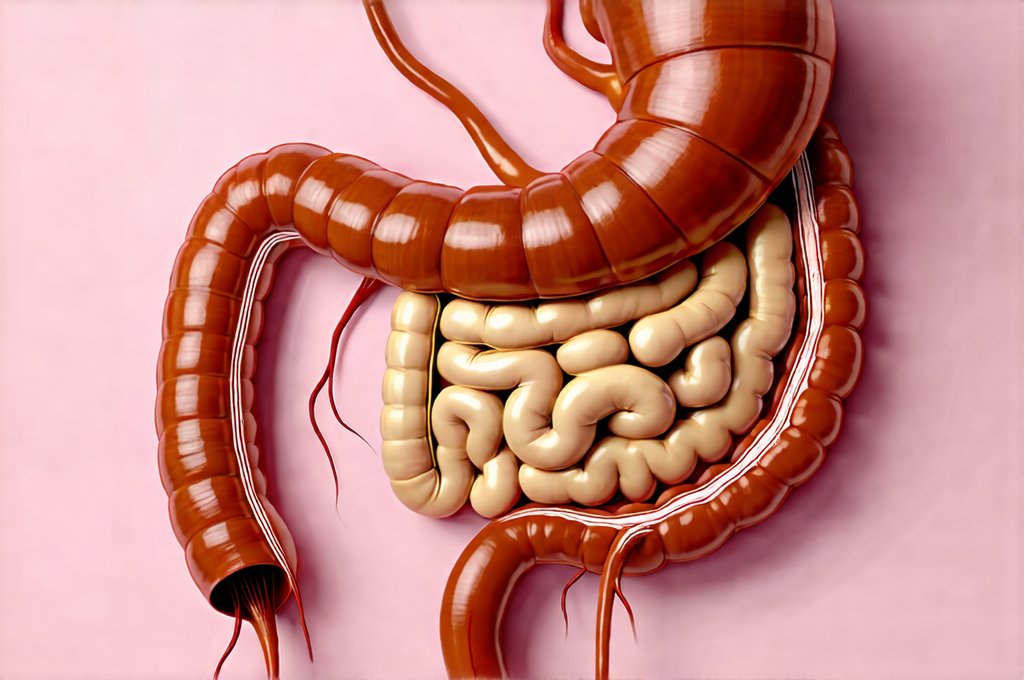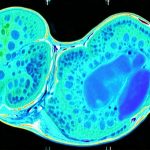The digestive system is often taken for granted until something goes wrong. We typically only pay attention when faced with obvious symptoms like bloating, diarrhea, or constipation. However, many imbalances exist below the threshold of noticeable discomfort – what we call “subclinical” digestive issues. These subtle disruptions can significantly impact overall health, influencing everything from nutrient absorption and immune function to mood and energy levels. Identifying these imbalances early is crucial for preventative care and optimizing wellbeing, as they frequently precede more serious conditions. Ignoring them allows problems to fester, potentially leading to chronic illnesses down the line.
Subclinical digestive imbalances are often insidious because they mimic everyday experiences or are dismissed as normal fluctuations. They don’t scream for attention; instead, they present as vague symptoms or subtle changes in body signals that we easily attribute to stress, lifestyle factors, or simply “getting older.” This makes self-diagnosis difficult and highlights the importance of a proactive approach to understanding your gut health. Understanding these imbalances isn’t about diagnosing yourself with a disease; it’s about gaining awareness of how your digestive system is functioning so you can support it effectively and prevent problems before they escalate. It’s also worth noting that what constitutes “normal” digestion varies greatly from person to person, making individualized assessment key.
Recognizing the Subtle Signs
Subclinical digestive imbalances rarely present as dramatic symptoms. Instead, they manifest as a constellation of subtle cues that often go unnoticed or are dismissed. These cues can be incredibly varied and depend on the specific imbalance, but common indicators include changes in stool consistency even if regular, occasional gas or bloating not directly linked to food intake, mild abdominal discomfort after meals, unexplained fatigue, skin issues like eczema or acne, and even mood swings. It’s important to look for patterns rather than isolated incidents. For example, consistently feeling sluggish after eating certain foods, even if you don’t experience bloating, could indicate a food sensitivity or enzyme deficiency.
These subtle signs aren’t necessarily indicative of a serious problem on their own, but they are signals that something isn’t quite right within the digestive system. Often, people will attempt to mask these symptoms with quick fixes like antacids or caffeine, which only temporarily alleviate the discomfort and can potentially worsen the underlying issue over time. A more holistic approach involves investigating the root cause of the imbalance through mindful observation and, if needed, professional guidance. Pay attention to how your body feels after eating – not just whether you experience immediate discomfort, but also your energy levels, mental clarity, and overall wellbeing in the hours that follow.
A critical aspect of recognizing subtle signs is understanding the connection between gut health and other bodily systems. The gut-brain axis, for example, demonstrates a strong link between digestive function and mental wellbeing. Therefore, unexplained anxiety, depression, or difficulty concentrating could be related to an imbalance in the gut microbiome. Similarly, skin issues are often linked to gut inflammation, as the digestive system plays a role in detoxification and immune regulation. Becoming attuned to these interconnected systems is key to identifying subclinical imbalances before they become more pronounced. Learning [how minor daily stress] (https://vitagastro.com/how-minor-daily-stress-adds-up-to-big-digestive-issues/) can affect your gut will help you manage stress effectively.
Functional Testing Options
While subjective symptoms can provide valuable clues, functional testing offers a more objective way to assess digestive health and identify underlying imbalances. It’s important to clarify that “functional” tests differ from conventional medical diagnostic tests; they aim to evaluate how well your body is functioning rather than simply identifying disease states. These tests are typically ordered through integrative or functional medicine practitioners, as they aren’t routinely offered in standard medical settings.
- Stool Analysis: Comprehensive stool testing can provide a wealth of information about gut microbiome composition, digestive enzyme production, inflammatory markers, and the presence of pathogens like parasites or harmful bacteria. It’s arguably the most valuable starting point for investigating subclinical imbalances because it directly assesses the environment where many issues originate. Results will reveal potential deficiencies in beneficial bacteria, overgrowth of problematic organisms, and impaired digestion of key nutrients.
- Small Intestinal Bacterial Overgrowth (SIBO) Testing: SIBO occurs when excessive bacteria accumulate in the small intestine, leading to fermentation and malabsorption. Breath tests are commonly used to diagnose SIBO by measuring hydrogen and methane levels after consuming a specific sugar solution. This test is particularly helpful for individuals experiencing bloating, gas, and abdominal pain.
- Food Sensitivity Testing: While not always definitive, food sensitivity testing can identify foods that may be triggering inflammation or digestive upset. These tests typically involve an elimination diet followed by reintroduction of foods to observe symptoms. It’s crucial to interpret these results carefully with a healthcare professional, as sensitivities are often nuanced and can change over time.
It’s important to note that functional testing isn’t about chasing diagnoses; it’s about gathering information to inform targeted interventions. Results should always be interpreted in the context of your individual symptoms and health history. Self-treating based solely on test results is strongly discouraged. A qualified practitioner can help you understand the findings, develop a personalized treatment plan, and monitor your progress. If you are planning to travel, consider [how to travel] (https://vitagastro.com/how-to-travel-without-triggering-your-digestive-symptoms/) without triggering digestive symptoms.
Dietary Strategies for Support
Diet plays a pivotal role in both creating and resolving subclinical digestive imbalances. While there’s no one-size-fits-all diet, certain strategies can support optimal digestion and gut health. Focusing on whole, unprocessed foods is paramount – prioritize fruits, vegetables, lean proteins, and healthy fats while minimizing processed foods, sugary drinks, and excessive amounts of refined carbohydrates. A key element is identifying potential food sensitivities through a carefully implemented elimination diet under the guidance of a healthcare professional or registered dietitian.
Beyond simply eliminating problematic foods, incorporating gut-healing nutrients can be incredibly beneficial. Foods rich in prebiotics (like onions, garlic, leeks, and bananas) nourish beneficial gut bacteria, while probiotic-rich fermented foods (such as yogurt, kefir, sauerkraut, and kimchi) introduce live microorganisms to the digestive tract. Additionally, incorporating fiber-rich foods promotes healthy bowel movements and supports a diverse microbiome. Hydration is also essential; adequate water intake helps soften stool, aids in nutrient absorption, and prevents constipation.
A mindful approach to eating is equally important. This means paying attention to your body’s signals of hunger and fullness, chewing food thoroughly, and avoiding distractions during meals. Stress can significantly impact digestion, so creating a calm and relaxed environment while eating can also be helpful. Consider incorporating digestive bitters before meals to stimulate digestive enzyme production or sipping on ginger tea to soothe the gut. Remember that dietary changes are often best implemented gradually, allowing your body time to adjust. [How to adjust recipes] (https://vitagastro.com/how-to-adjust-recipes-for-better-digestive-tolerance/) can help you navigate these changes.
Lifestyle Factors & Gut Health Connection
Digestive health isn’t solely determined by diet; lifestyle factors play a significant role in maintaining balance. Chronic stress, for example, can disrupt gut motility, alter microbiome composition, and increase inflammation. Implementing stress management techniques like mindfulness, yoga, meditation, or spending time in nature can significantly improve digestive function. Regular physical activity is also crucial, as exercise promotes bowel regularity, reduces stress, and boosts overall wellbeing.
Sleep quality is another often overlooked factor. Insufficient sleep disrupts the gut microbiome, weakens immune function, and increases inflammation. Aim for 7-9 hours of quality sleep each night by establishing a regular sleep schedule, creating a relaxing bedtime routine, and optimizing your sleep environment. Finally, reducing exposure to environmental toxins – such as pesticides, herbicides, and antibiotics – can help protect the gut microbiome and minimize inflammation. Antibiotics, while sometimes necessary, can disrupt the delicate balance of gut bacteria, so use them judiciously and consider probiotic supplementation afterward (under professional guidance). Prioritizing a holistic lifestyle approach is essential for long-term digestive health and overall wellbeing. Taking [rest days] (https://vitagastro.com/how-to-use-rest-days-for-digestive-reset/) can also help reset your digestion, while understanding [how to recover after] (https://vitagastro.com/how-to-recover-after-a-digestive-flare-up/) a flare up will prepare you for future incidents. If you struggle with anxiety around food, consider [how to eat] (https://vitagastro.com/how-to-eat-without-digestive-anxiety/).


















